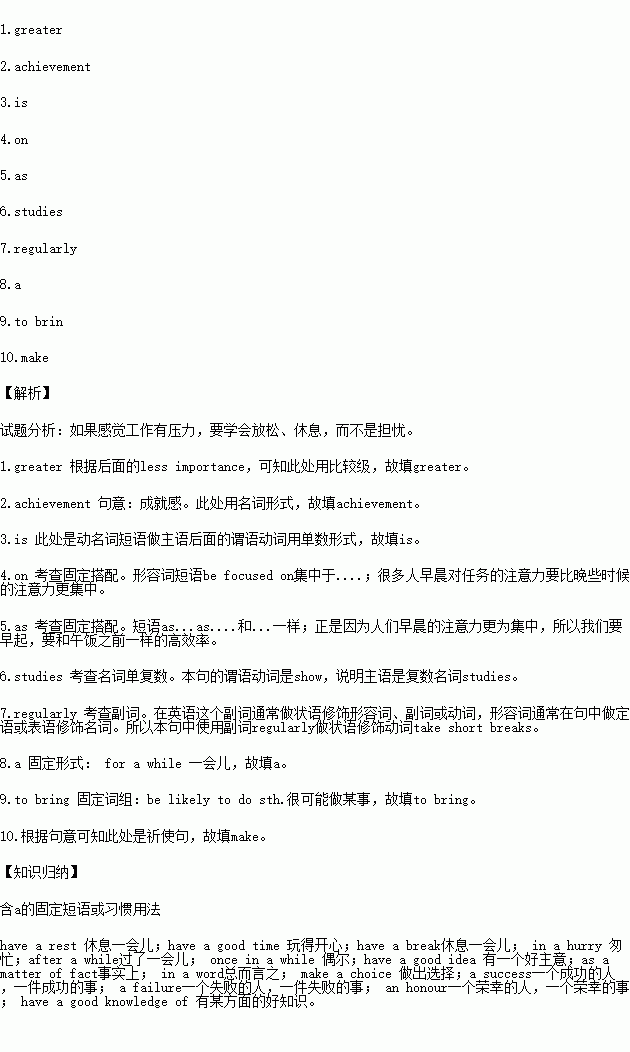题目内容
阅读下面材料,在空白处填入适当的内容(1个单词)或括号内单词的正确形式。
If you feel stressed by responsibilities at work, you should take a step back and identify (识别)those of 1. (great)and less importance. Then, handle the most important tasks first so you’ll feel a real sense of 2. (achieve). Leaving the less important things until tomorrow 3. (be) often acceptable.
Most of us are more focused 4. our tasks in the morning than we are later in the day. So, get an early start and try to be as productive 5. possible before lunch. This will give you the confidence you need to get you through the afternoon and go home feeling accomplished.
Recent 6. (study) show that we are far more productive at work if we take short breaks 7. (regular). Give your body and brain a rest by stepping outside for 8. while, exercising, or dong something you enjoy.
If you find something you love doing outside of the office, you’ll be less likely 9. (bring) your work home. It could be anything-gardening, cooking, music, sports—but whatever it is, 10. (make) sure it’s a relief from daily stress rather than another thing to worry about.

